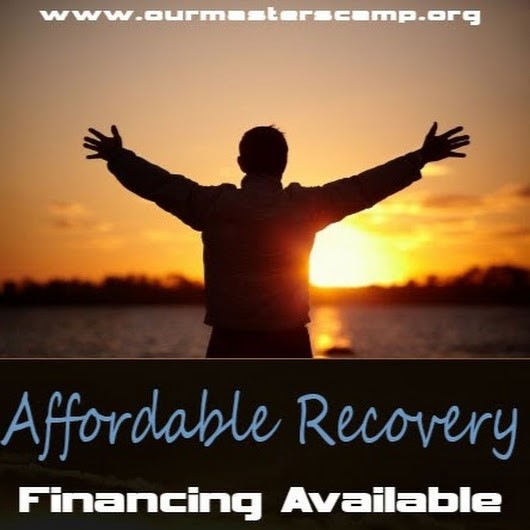Msir Rehab Facilities Dumas TX
Home
Msir Rehab Facilities Dumas TX Resources and Information Online
Msir Rehab Facilities Dumas TX
Often these types of treatment programs are closely connected to a court system and can have a high degree of “court mandated” clients. Avoid self-blame. You can support a person with a substance abuse problem and encourage treatment, but you can’t force an addict to change. For legal drugs such as alcohol, complete abstention—rather than attempts at moderation, which may lead to relapse—is also emphasized ("One is too many, and a thousand is never enough.") Whether moderation is achievable by those with a history of abuse remains a controversial point, but is generally considered unsustainable.[2] Types of treatment[edit] The brain’s chemical structure is impacted by drugs of abuse and these changes are present long after an individual stops using, This change in brain structure increases risk for relapse, making treatment an important part of the rehabilitation process.[3] Various types of programs offer help in drug rehabilitation, including: residential treatment (in-patient/ out-patient), local support groups, extended care centers, recovery or sober houses, addiction counselling, mental health, and medical care. The Sun (2008) It's like a drug addict: you can only move forward if you confront your past. He’s doing the same by sharing his drug experiences in the hopes other won’t go down the same road. An individual suffering from the disease of addiction can become addicted to almost anything, including non-substance involved activities such as gambling, love and sex, shopping and people (codependency).
You have many options when it comes to rehab, but only faith-focused Christian rehab centers can offer the full scope of care that you need to truly recover. It is … Continue reading “Christian rehab in ME Transforming Lives” With a population of approximately 1. If you’re worried that a friend or loved one might be abusing drugs, look for the following warning signs: Physical warning signs of drug abuse or addiction Bloodshot eyes, pupils larger or smaller than usual Changes in appetite or sleep patterns Sudden weight loss or weight gain Deterioration of physical appearance, personal grooming habits Unusual smells on breath, body, or clothing Tremors, slurred speech, or impaired coordination Behavioral warning signs of drug abuse or addiction Drop in attendance and performance at work or school Unexplained financial problems; borrowing or stealing Engaging in secretive or suspicious behaviors Sudden change in friends, favorite hangouts, and hobbies Frequently getting into trouble (fights, accidents, illegal activities) Psychological warning signs of drug abuse or addiction Unexplained change in personality or attitude Sudden mood swings, irritability, or angry outbursts Periods of unusual hyperactivity, agitation, or giddiness Lack of motivation; appears lethargic or "spaced out" Appears fearful, anxious, or paranoid Warning signs of commonly abused drugs Marijuana: Glassy, red eyes; loud talking, inappropriate laughter followed by sleepiness; loss of interest, motivation; weight gain or loss. You don’t wake up one morning and decide to be a drug addict.
More Resources For Coricidin Addiction Detox Program

Below are Some More Details on Spice Abuse Facilities Dumas TX
If you scored 1, there is a 75% chance you’re addicted. These are all warning signs of something under the surface is going on in their life.
Extra Resources For Spice Abuse Facilities
Addiction hotlines work by Assessing the patient’s needs depending on the severity of his or her addiction Providing information about how treatment programs work Finding the “right†treatment center for the patient based on treatment needs, insurance, and other factors Providing guidance for family members of addicts who want to help their loved ones This is where the addiction hotlines come in. Contact us today to learn more at (844) 402-3605.
More Details About Percocet Detox Clinic Dumas TX
Only your child can find the answers to their sobriety. Avoid emotional appeals that may only increase feelings of guilt and the compulsion to use drugs. His poor decisions and ability to acquire drugs (like most celebrities) made for legal troubles. Loving your child isn’t always enough.  Your addict child will hurt themselves, harm themselves, and cause themselves more pain that you can imagine, and all the love you have for them can’t prevent it or stop it. Many treatment centers provide guidance and planning for after you leave the inpatient stay.
Click Here for More Information
Previous Next
You may also like:
Faith Based Rehabs Blue Springs MO
Center For Addiction Treatment Marcell MN
Opioid Treatment Dorris CA
Alprazolam Addiction Rehab Center High View WV
Ativan Rehab Center Near Me Beeler KS
Carisoprodol Detox Treatment Clinics Nolensville TN
Endodan Addiction Rehab Clinic Antelope CA
Hycomine Addiction Detox Program Summitville NY
Amphetamines Abuse Facility La Puente CA
Cannabis Detox Near Me Kanona NY
Triazolam Addiction Treatment Programs New Madison OH
Methadone Addiction Rehab Program Tyrone GA
Endodan Rehab Facility Near Me Forest Ranch CA
Clonazepam Abuse Programs Fulton MD
Librium Addiction Rehab Program Nekoma ND
Methamphetamine Detox Treatment Clinics La Crosse KS
Pcp Addiction Rehab Camilla GA
Laudanum Addiction Detox Program Pylesville MD
Buprenorphine Rehab Near Me Nicolaus CA
Ms Contin Addiction Treatment Program Shenandoah PA